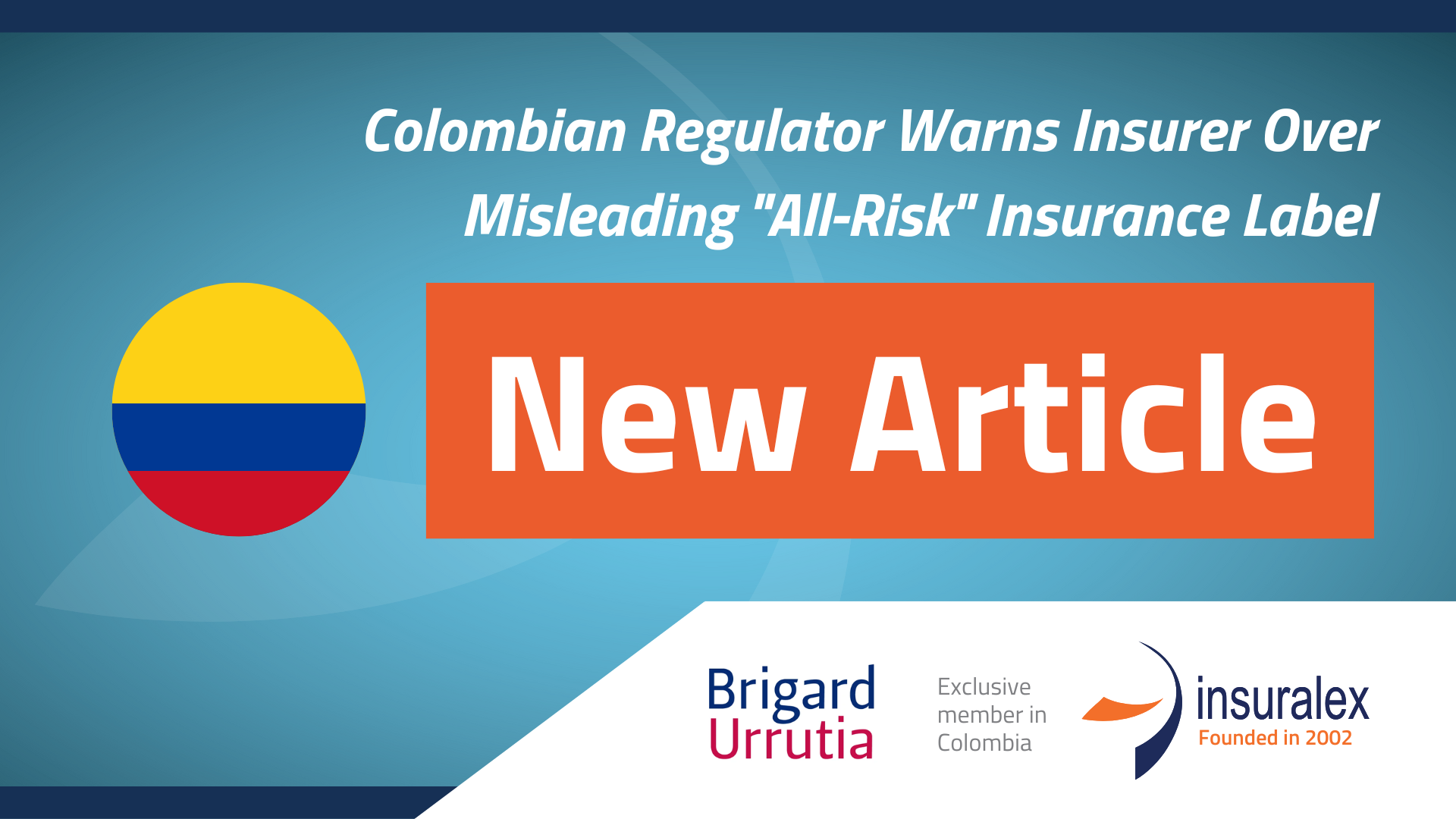
On January 16, 2025, the Colombian Financial Superintendency (the “SFC” for its acronym in Spanish) issued a warning to an insurance company for violating consumer protection regulations by offering a product with misleading conditions. The insurer marketed a product as “all-risk” insurance, but upon review, the SFC found that its terms aligned with a named-peril insurance instead.
The insurer defended itself by arguing that its product met market standards and that other insurers sold similar insurance products under the same label. However, the SFC upheld its warning based on the following key considerations:
1. Duty of Diligence and Transparency
The SFC emphasized that insurance companies, as professional entities in the financial sector, have a heightened duty of diligence and transparency when offering products. They must ensure that all information provided to consumers is clear, sufficient, and truthful. This duty extends beyond contractual obligations, as insurers must actively work to minimize the information asymmetry between companies and consumers.
Under Colombian consumer protection laws, particularly Law 1328 of 2009, insurers must present their products in a way that allows consumers to fully understand the scope of coverage, exclusions, and limitations. Misleading terminology or ambiguous descriptions may compromise consumer rights and lead to regulatory sanctions.
2. Third-Party Practices Do Not Justify Non-Compliance
The insurer argued that similar products existed in the market and were also being sold under the “all-risk” label, even using the same insurance agency. The SFC rejected this argument, emphasizing that compliance is assessed on an individual basis. The fact that other companies engage in the same practice does not exempt an insurer from its own duty to comply with regulations.
The SFC reaffirmed that every financial entity is responsible for ensuring that its products adhere to legal and regulatory standards, regardless of how competitors operate. Regulatory oversight focuses on each insurer’s conduct independently, and invoking industry practices does not serve as a valid defense against violations to the law.
3. No Legal Definition of “All-Risk” Insurance
The SFC clarified that Colombian law does not provide an official definition of “all-risk” versus “named-peril” insurance. Instead, insurance regulations only establish broad categories of coverage within which insurers can operate.
Despite this lack of legal classification, the term “all-risk” is generally understood to refer to comprehensive coverage that protects against all potential risks except those explicitly excluded in the insurance. If an insurer applies this label to a product that only covers specifically named risks, it creates an expectation of broader coverage that may mislead consumers.
4. Ensuring Consistency Between Product Name and Coverage
A key factor in the SFC’s decision was the discrepancy between the product’s advertised name and its actual coverage terms. While insurers have some flexibility in how they market their products, they cannot use terminology that contradicts the insurance contractual conditions.
The SFC concluded that the insurer’s use of the “all-risk” label could create false expectations for consumers, leading them to believe they had broader protection than the insurance actually provided. The regulator warned that such inconsistencies violate consumer protection principles and could result in sanctions if repeated.
5. Conclusion
This case highlights the growing regulatory scrutiny over insurance product transparency in Colombia. It serves as a warning to insurers that misleading terminology or ambiguous descriptions can lead to regulatory action. Companies must ensure that their marketing and contractual terms are fully aligned to maintain consumer trust and regulatory compliance.
Lucas Fajardo Gutiérrez | Partner of the Insurance and Reinsurance Team
Luis Alejandro Peña | Associate of the Insurance and Reinsurance Team
Brigard Urrutia
Insuralex´s Exclusive Member in Colombia



